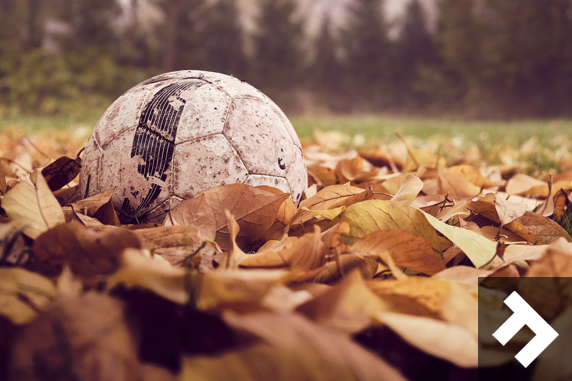According to a recent survey of 1000 UK adults that regularly participate in amateur sports, it’s been revealed that it costs on average just under £20 per month to play amateur football. It’s the second most expensive sport to play out of 13 surveyed, with golf being the only pastime to cost more at just under £23 per month.
This begs the question – what makes amateur football one of the most expensive sports to play, and what are the costs made up of? Here, we explore some of the costs involved, including both the club and personal player expenses.
There are many things that clubs may need to fork out for, including:
Equipment
Amateur football clubs need to buy a wide range of equipment, including goals and nets, corner flags, bibs, cones and of course footballs – both for training and games. They may also need to buy kit bags to store shirts, shorts or jackets.

Pitch hire and/or maintenance
The club will need to pay to hire a pitch if they don’t own one themselves, and this cost will vary depending on the location. They may also need to cover maintenance costs, such as cutting grass and preserving pitch markings.
Changing room hire
Clubs may wish to provide a changing room for players, which they can hire or buy. As well as these fees, they may need to pay for hot water and heating bills.
Club house
Some clubs might operate a club house, where spectators and players can enjoy a drink, food and socialise with one another. Of course, this will come with a range of overhead costs, such as staffing if they don’t have volunteers and utilities like power and water.
Affiliation and league entry
Grassroots football clubs will need to pay for FA affiliation and also entry into the relevant league.

Training and development
Clubs may wish to provide full or partial funding to put coaches through the various FA coaching courses, as well as enrol staff on first aid courses.
Referee costs
Clubs will also need to pay a referee for each game.
Personal Player Costs
- Subs: Most players will need to pay subs, which can be charged weekly, monthly or yearly depending on the club. These subs help football clubs to cover costs like those mentioned above
- Football boots: Players will need to fork out for a good pair of football boots or multiple pairs for soft and hard ground
- Shorts & socks: They may also need to buy their own shorts and socks. What kit players are required to buy will vary from club to club, as some will provide kit and others may not
- Kit bag: Players may need to invest in a bag to transport their kit from game to game
- Travel: Players may need to travel to different game locations, which may mean they need to cover petrol or public transport costs
While the costs of subs, kit and so on may seem huge in the first instance, many households across the UK may struggle to find the money to pay for their family members to partake in amateur football. It’s important that they carefully examine their finances before committing to playing regularly, to establish how much they can afford to spend on the hobby.
![]()
 Instagram
Instagram Pinterest
Pinterest Facebook
Facebook Twitter
Twitter YouTube
YouTube




 Paul
Paul 



